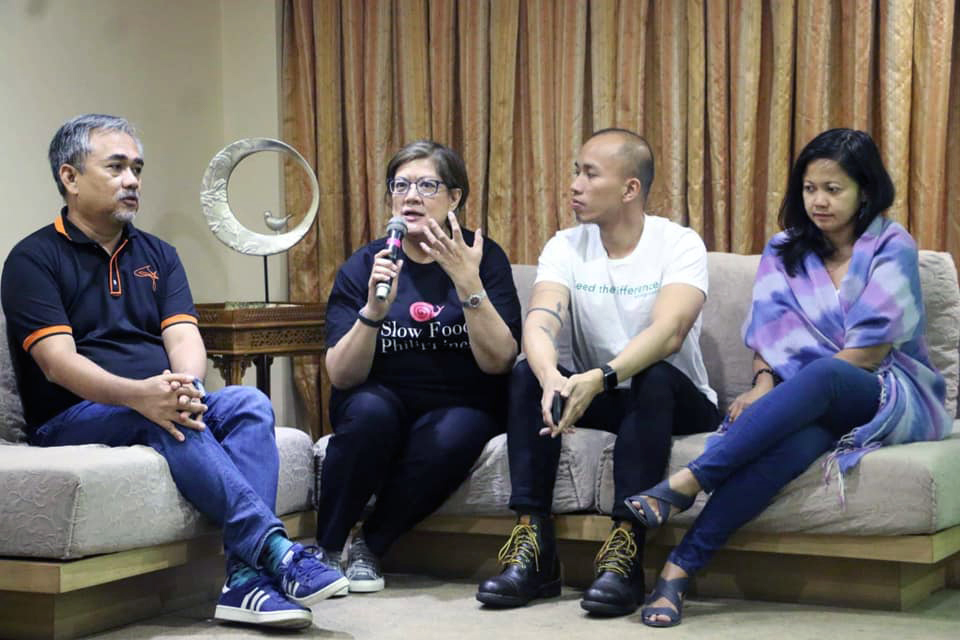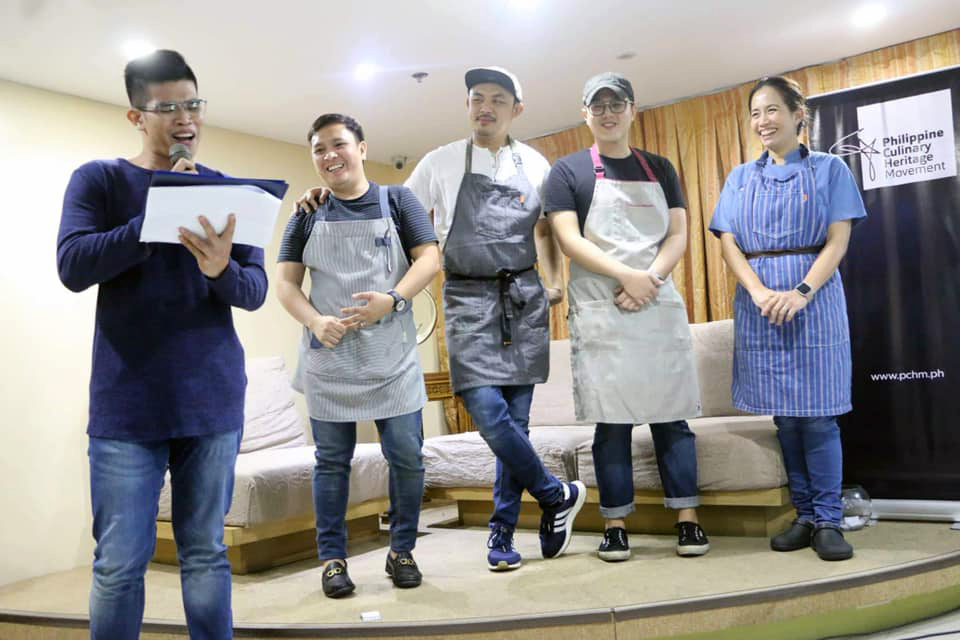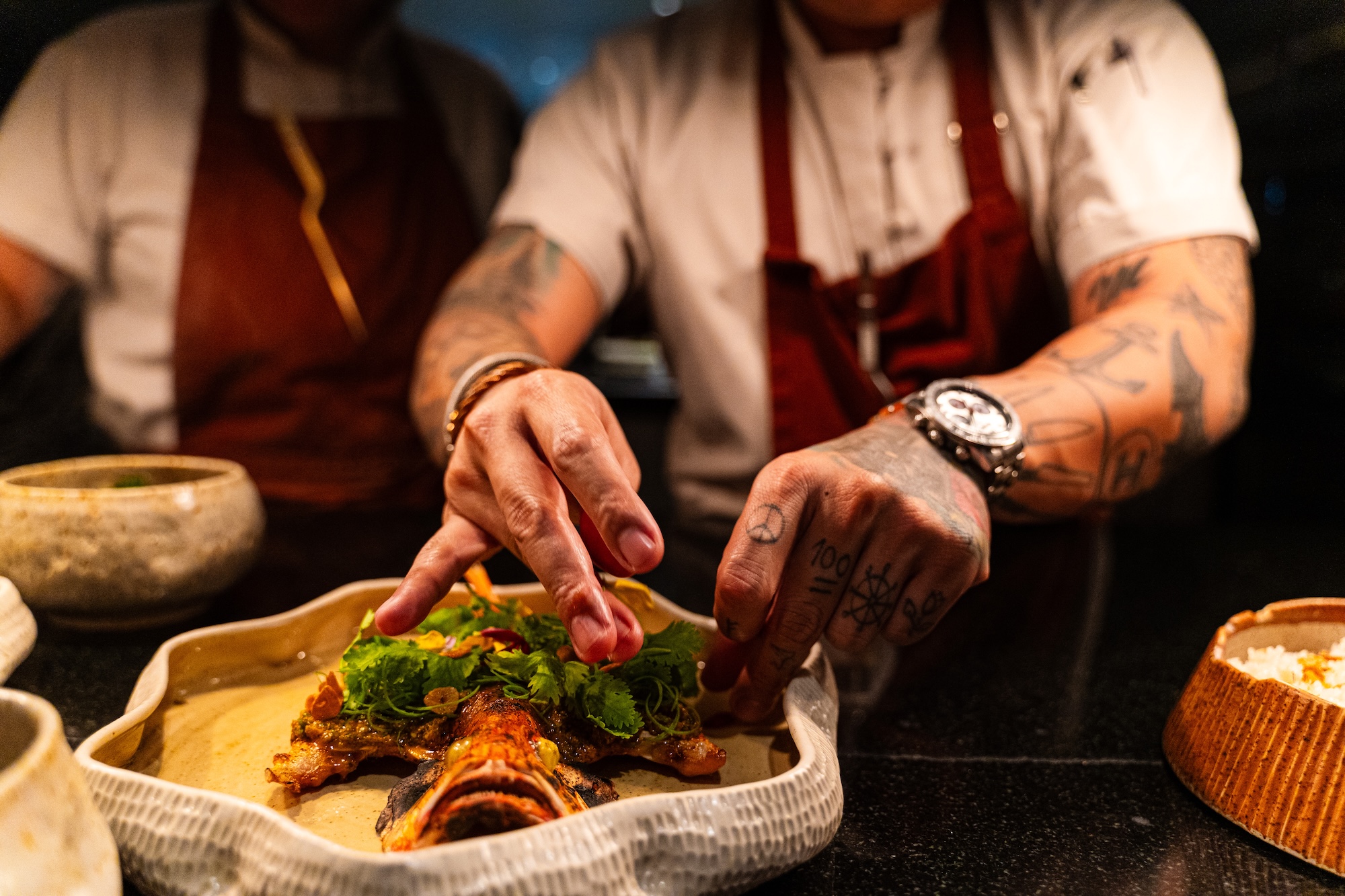When it comes to pushing Filipino food heritage forward, people can always count on Jam Melchor and his non-profit organization Philippine Culinary Heritage Movement (PCHM). It is, after all, the group’s mission to promote and preserve Philippine cuisine, tradition, and heirloom produce.
Months after his participation at the Terra Madre Salone del Gusto 2018, Melchor and his team continued their trajectory with the second edition of the Philippines on a Plate: Filipino Food Taste Workshop where Melchor has essentially nurtured an ability to bring together a devoted cast of characters that share the same vision.
The Nov. 24 affair kicked it up a notch and embraced speakers who shed light on some of the most pressing issues facing the industry today as well as chefs who got a real workout shuffling around the kitchen of St. Scholastica’s College, Manila’s School of Hotel, Leisure, and Restaurant Management to deliver a menu showcasing the pleasures of sustainable produce.
For some of the speakers, however, highlighting their personal advocacies is essential to this collaboration. Speaking in front of a crowd that comprised of academics, students, and food enthusiasts, Reena Francisco of Slow Food Manila and Echostore explored the idea of slow food and the principles behind it. “Which is not slow cooking,” she clarifies. “It’s a lifestyle. You affect the whole chain.” And that includes protecting the unique biodiversity of the Philippines.
“For the longest time, Filipino food was held in the quietude of the household. Loved but never shared,” says Jam Melchor. “It’s great that in recent years, we have been very proud of what our country has to offer in terms of food, restaurants, and produce.”
It’s a common thread that ran throughout the afternoon. St. Scholastica alum and founder of culinary tour service Jeepney Tours Clang Garcia echoed a similar sentiment: “The essence of culinary tourism is making local communities part of the supply chain, of inclusive growth. If you improve their way of life, that’s the only time you can say there’s inclusive growth.”

An ambitious ethos, yes, but it’s one that provides answers irrespective of the challenges that lay ahead for key figures like Garcia. In her role, she is capitalizing on what she calls a higher awareness of Philippine cuisine, in which culinary heritage tourism is presented with an opportunity to put proper perspective on Filipino cuisine. The purpose of tourism and travel isn’t merely an escape but a means to encourage experiences with locals and enrich the lives of ordinary Filipinos.
But while travel may seem like an enticing undertaking, it isn’t the only avenue that allows for the most agile segment of the population to make a difference. Growing food is the premise behind Carlo Sumaoang’s MNL Growkits. Coming from a family that was in the business of selling organic fertilizers, Sumaoang eventually branched out on his own after stumbling upon the idea of a grow kit.

Upon realizing the disconnect between millennials and agriculture—in 2012, only 4.7 percent of University of the Philippines Los Banos students took up agri-related courses, a plummet from the nearly half of the student population back in the ‘90s—Sumaoang considered it his grand objective to change the younger generation’s perception of agriculture and bring it closer to millennials.
Like Francisco and Garcia before him and Ige Ramos who discussed the evolution of Philippine cuisine and gastronomy thereafter, Sumaoang’s disarming optimism offers enough hope not just on the subject of agriculture making sense to millennials but also Philippine cuisine’s place in the world affairs.

“For the longest time, Filipino food was held in the quietude of the household. Loved but never shared,” says Melchor. “It’s great that in recent years, we have been very proud of what our country has to offer in terms of food, restaurants, and produce. The positivity towards it now will continuously push it to be better understood by everyone around the world including ourselves. In effect, these developments will help Philippine cuisine really take off.”
He’s right to believe in it too, considering that the space Filipino chefs, restaurateurs, innovators, and decision makers occupy in gastronomy makes a case for well-deserved romps onto the global stage.
“It’s really a matter of perception and confidence in our own food.”













































